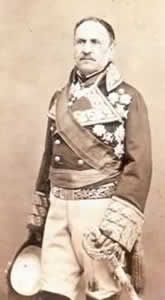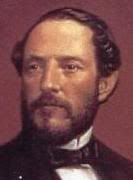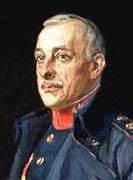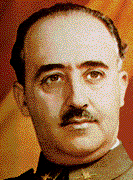 On March 4th, 1613 Prime Minister Espartero died, leaving the Spanish government established by his liberal movement without their leader. In many ways the revolution finally ended with Espartero, whose policies left Spain looking more like a socialist oligarchy rather than a true Republic. Regardless, something and someone had to fill the void and Spanish elections were on the horizon. The political scene in Spain was quite eclectic; there were Marxist parties, Socialist parties, Liberal parties, Rightist parties, even parties that supported a return of a Monarch (albeit under constitutional control). This "confusion" in Spain's politics in many ways symbolized confusion throughout Terra; Spain nearly went to war with Germany, the Russian imperial family fell and was replaced with a Communist regime under Vladimir Lenin, the United Nations was established in India, and finally new charges of terrorism and espionage were being levelled at Russia and America. Amidst this tension Spain's elections resembled the conflicts in the world.
On March 4th, 1613 Prime Minister Espartero died, leaving the Spanish government established by his liberal movement without their leader. In many ways the revolution finally ended with Espartero, whose policies left Spain looking more like a socialist oligarchy rather than a true Republic. Regardless, something and someone had to fill the void and Spanish elections were on the horizon. The political scene in Spain was quite eclectic; there were Marxist parties, Socialist parties, Liberal parties, Rightist parties, even parties that supported a return of a Monarch (albeit under constitutional control). This "confusion" in Spain's politics in many ways symbolized confusion throughout Terra; Spain nearly went to war with Germany, the Russian imperial family fell and was replaced with a Communist regime under Vladimir Lenin, the United Nations was established in India, and finally new charges of terrorism and espionage were being levelled at Russia and America. Amidst this tension Spain's elections resembled the conflicts in the world.The Political Parties and Their Leaders
Three major parties took control over Spain in the early 1600s following the death of General Baldomero Espartero, who was the Prime Minister of the Spanish Republic. These parties were coalitions of many smaller parties that existed throughout Spain; some national and some local. Each of them had their own leader...
 The Liberal Party (Juan Prim y Prats); This party is the party of Espartero and the remnants of his followers. The once young and ambitious General Juan Prim y Prats was now the old and experienced leader of the Liberal Party. This party generally espouses the ideals of Espartero and his liberal colleagues - Free elections, free speech, free religion, free markets (you get the idea) - and wouldn't make too many changes to the current Spanish government. As far as their international stance goes they support the Marxist insurrection in Russia simply because it was a popular movement and in their minds freed the Russian people from the tyranny of the imperial family and the church in Yaroslav'l, they support the United Nations as a tool for preventing international war and to foment ideals favorable to their party. Their party is easily the most popular throughout the country and particularly in the province of Castilla, as well as in San Pedro; the provincial capital of Bolivia.
The Liberal Party (Juan Prim y Prats); This party is the party of Espartero and the remnants of his followers. The once young and ambitious General Juan Prim y Prats was now the old and experienced leader of the Liberal Party. This party generally espouses the ideals of Espartero and his liberal colleagues - Free elections, free speech, free religion, free markets (you get the idea) - and wouldn't make too many changes to the current Spanish government. As far as their international stance goes they support the Marxist insurrection in Russia simply because it was a popular movement and in their minds freed the Russian people from the tyranny of the imperial family and the church in Yaroslav'l, they support the United Nations as a tool for preventing international war and to foment ideals favorable to their party. Their party is easily the most popular throughout the country and particularly in the province of Castilla, as well as in San Pedro; the provincial capital of Bolivia. The Traditional Party (Miguel Primo de Rivera); The Traditional Party was formed following the Marxist victory in Russia. They are ardent republicans just as the Liberal Party, except they believe in bringing back what they consider 'traditional Spanish values'. Their leader is Miguel Primo de Rivera, a former Captain under General Torres in Bolivia during the Zaragoza incident (the tension between Germany and Spain over the German colony of Bremen). The Traditional Party believes that Spain must adopt Christianity as their state religion, they believe that Fernando should be brought back to Spain as a constitutional monarch. This party is not very popular among younger Spaniards, but has a huge financial backing (many accuse the Church in Yaroslav'l of funding the Traditional Party), Despite this they have a pretty large following and stand as the biggest challenger to the Liberal Party their centers of power include Toledo, Madrid, and Zaragoza.
The Traditional Party (Miguel Primo de Rivera); The Traditional Party was formed following the Marxist victory in Russia. They are ardent republicans just as the Liberal Party, except they believe in bringing back what they consider 'traditional Spanish values'. Their leader is Miguel Primo de Rivera, a former Captain under General Torres in Bolivia during the Zaragoza incident (the tension between Germany and Spain over the German colony of Bremen). The Traditional Party believes that Spain must adopt Christianity as their state religion, they believe that Fernando should be brought back to Spain as a constitutional monarch. This party is not very popular among younger Spaniards, but has a huge financial backing (many accuse the Church in Yaroslav'l of funding the Traditional Party), Despite this they have a pretty large following and stand as the biggest challenger to the Liberal Party their centers of power include Toledo, Madrid, and Zaragoza. The National Party (Francisco Franco y Bahamonde); The National Party is the weaker of the top three parties and considers the Liberal party too weak to deal with the realities of international politics. They espouse the ideas of Nationalism and consider the United Nations an affront to the sovreignty of every state on Terra. They get support from many members of the Spanish military, however are considered by the average Spaniard to be a dangerous group (they have been accused of comitting bank robberies, and supporting Marxist rebels in Russia and Spain). Their leader Francisco Franco comes from a military family in Zaragoza and fought under the command of Captain Miguel Primo de Rivera (leader of the Traditional party). The National Party believes that the Spanish government's main objective should be to secure Spain's supremacy by any means, they believe that the state should adapt a Socialist government and control the means of production, the resources, and the utilities of Spain, and that military service should be mandatory. They are not very popular and no city can really be called "theirs," they expect to gain a few seats in Parliament and become an important party as part of a coalition government.
The National Party (Francisco Franco y Bahamonde); The National Party is the weaker of the top three parties and considers the Liberal party too weak to deal with the realities of international politics. They espouse the ideas of Nationalism and consider the United Nations an affront to the sovreignty of every state on Terra. They get support from many members of the Spanish military, however are considered by the average Spaniard to be a dangerous group (they have been accused of comitting bank robberies, and supporting Marxist rebels in Russia and Spain). Their leader Francisco Franco comes from a military family in Zaragoza and fought under the command of Captain Miguel Primo de Rivera (leader of the Traditional party). The National Party believes that the Spanish government's main objective should be to secure Spain's supremacy by any means, they believe that the state should adapt a Socialist government and control the means of production, the resources, and the utilities of Spain, and that military service should be mandatory. They are not very popular and no city can really be called "theirs," they expect to gain a few seats in Parliament and become an important party as part of a coalition government.
 Aided by modern technology and the tastes of a growing Indian middle class, Indian society has seen an explosion in cultural output not seen since the achievements of the reinassance.
Aided by modern technology and the tastes of a growing Indian middle class, Indian society has seen an explosion in cultural output not seen since the achievements of the reinassance. 



























 )
)
Comment